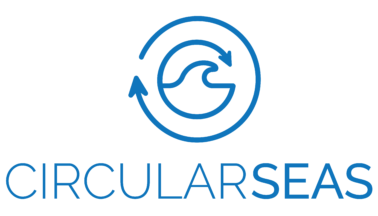The Leartiker technology centre in Markina-Xemein and Azaro Fundazioa, both members of the Basque Science, Technology and Innovation Network, continue to collaborate on the CIRCULARSEAS project, which enters its final year in 2022.
The 6th partners’ meeting was held in mid-January, where the milestones established during the past six months and the steps to take over the next six months were reviewed. Consequently, the Business Portfolio Report will be published this February, which compiles the work developed through the regional workshops held at each hub, including the sustainable products identified in the five nodes and the business models that have been developed for each hub.
At the Ondarroa hub, discarded polyamide fishing nets have been identified as the waste most generated and with the greatest potential for reuse, aiming to close the circle through their recycling and use to manufacture price holders to identify the country’s fish. A second development being carried out is the use of a biodegradable material in marine environments to prevent polluting plastic waste in the oceans.
Likewise, over the past few months Leartiker, as leader of the project’s technological developments work package, together with the University of Vigo (UVI) and the University of La Rochelle (URL), have been working intensively on the development of an integrated 3D printing environment to create a user-friendly system to promote the adoption of 3D printing technology in the maritime industries. To this end, they are working on an application, which will guide the end-user through a simple step-by-step process of choosing the most suitable recycled material and its final printing with an automated parameter setting. Leartiker’s role is focused on the pre-processing and recycling of waste from different hubs, ranging from fishing nets to packaging straps to oyster catchers, to develop materials suitable for the identified sustainable products.
Work on the planning of pilot plants at each hub is also ongoing, with a view to launching their implementation as soon as all the technological developments are completed.
Meanwhile, the project’s networking and dissemination efforts have also made significant strides in recent months. On the one hand, in November Leartiker and Azaro held the first of three thematic meetings aimed at exchanging experiences, challenges and difficulties with similar projects being carried out in the field of marine waste. The first meeting focused on the sharing of seven projects at a national level, with the participation of Irene Díez Ruiz (ECOALF), Julio Maroto (CETMAR), Carlos León Perfecto (Sustainn), Rubén Rodríguez Alonso (Asociación Vertidos Cero), Carlos Sanz-Lázaro (University of Alicante) and Estibaliz Hernández Eleno (MIK). Several common points between the projects and synergies for future actions were identified during the meeting. The next meeting will be held in March and will open its focus to international projects.

I International Seminar on Plastic Recycling
Six scientific publications were also produced in 2021 as part of the project. Leartiker, together with Blanca Lekube, head of the CircularSeas project, presented a poster at the I International Seminar on Plastics Recycling organised by Aimplas in Valencia on 1 and 2 December. The poster, produced in collaboration with Azaro, presented a summary of the diagnosis of the Ondarroa hub as well as the technological advances made so to date. Another publication of note is the first article published in the scientific journal (Applied Sciences) by the University of Vigo in collaboration with Leartiker, entitled “User-oriented integrated service for 3D printing environments with recycled material from maritime plastic waste”.


